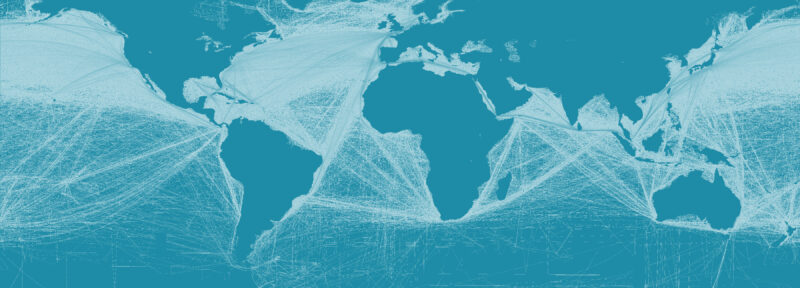New Report Highlights Barriers and Opportunities for Green Shipping on West Coast
VANCOUVER—On the heels of a global agreement to transition away from fossil fuels, a new report from Oceans North, Arup, the Vancouver Maritime Centre for Climate (VMCC), and C40 Cities Climate Leadership Group (C40) is shedding light on the challenges when it comes to decarbonizing shipping on Canada’s West Coast—as well as some of the solutions.
The report, New Energy Markets in West Coast Shipping, is the result of a workshop held earlier this fall in Vancouver that brought together stakeholders from across the marine supply chain to discuss how best to advance the industry’s energy transition. This novel approach included not only ports and shipping representatives, but also energy producers, clean tech entrepreneurs and government officials. “Despite a universal understanding that the transition to new fuels will require unparalleled cross-value collaboration, there is a disconnect between energy producers and maritime sector offtakers,” says Brent Dancey, the Director of Marine Climate Action at Oceans North. “By getting everyone in a room together, we were really able to dig into what needs to happen next and create new relationships up and down the marine fuel supply chain.”
The shipping industry produces roughly 3 percent of the world’s emissions, and that number is growing. Ships need to switch to low- and zero-emission fuels in order to fight climate change and reach our emissions targets. The transition to new marine fuels presents an economic opportunity for Canada—an emerging producer and exporter of green hydrogen and ammonia—by leveraging these major projects to supply domestic and international ships. But despite announcements of new “green shipping corridors”—routes that link two or more ports with access to clean fuels—the necessary infrastructure to support maritime decarbonization has yet to be created.
One of the report’s key conclusions is that ships and ports can play an important role in helping the broader zero-emission fuel ecosystem develop on the West Coast. Zero-emission fuels are currently expensive to make, and producers contemplating an investment in new infrastructure need to know that the demand is there. Ports and ships are not just a way of transporting that fuel to market but can also help aggregate zero-emission fuel demand to justify investments in fuel production infrastructure. “The capital cost and scale required for economical fuels production will require debt financing and firm fixed-price offtake of the fuels for the full life of the facility,” says Andy Ralph, Americas Hydrogen Lead at Arup. “To ramp up to match the supply to maritime demand, industry, government, and the financial sectors will need to work together to chart a pathway to first-generation zero-emission fuel projects that are competitive, profitable, and timely.”
The current cost of zero-emission fuels and technologies is also a concern for consumers, and a major issue many participants identified was the importance of government financial support and community partnerships to fund demonstration projects, bring down prices, and help achieve scale quickly. “Just like land-based transportation, marine industries will need help to transition, and cities can be indispensable partners in unlocking critical investments in urban climate infrastructure,” says Juvarya Veltkamp, Senior Advisor to C40 Cities’ Green Ports Forum. “The maritime sector competes with other sectors for priority access to feedstocks for zero-emission fuels, and a joined-up strategy with local communities will help to effectively communicate the unique industry needs to policymakers.” Veltkamp stressed that allyship with cities on maritime decarbonization can help to emphasize the local benefits of reducing emissions from global supply chains, while developing pathways for green jobs and a just transition.
Since the Vancouver workshop occurred, Canada announced the launch of the $165.4 million Green Shipping Corridor Fund, which will support the development of clean fuels and technologies at major ports as well as the development of zero-emission vessels. Additional policy changes such as tax incentives could help further signal the government’s commitment to marine decarbonization and provide certainty across the supply chain.
In the meantime, open lines of communication are critical to ensure that all the necessary actors are aligned, and the report’s authors are committed to convening more discussions. “The world has agreed to transition away from fossil fuels, and Canadian ports and shipping have an important role to play,” says Dancey. “But in order to make it a reality, we need a coordinated approach.”
For more information, please contact:
Sean Young
Communications Specialist
Oceans North
[email protected]
Jonathan Pulik
Communications Manager
Arup
[email protected]
C40 Cities
[email protected]




